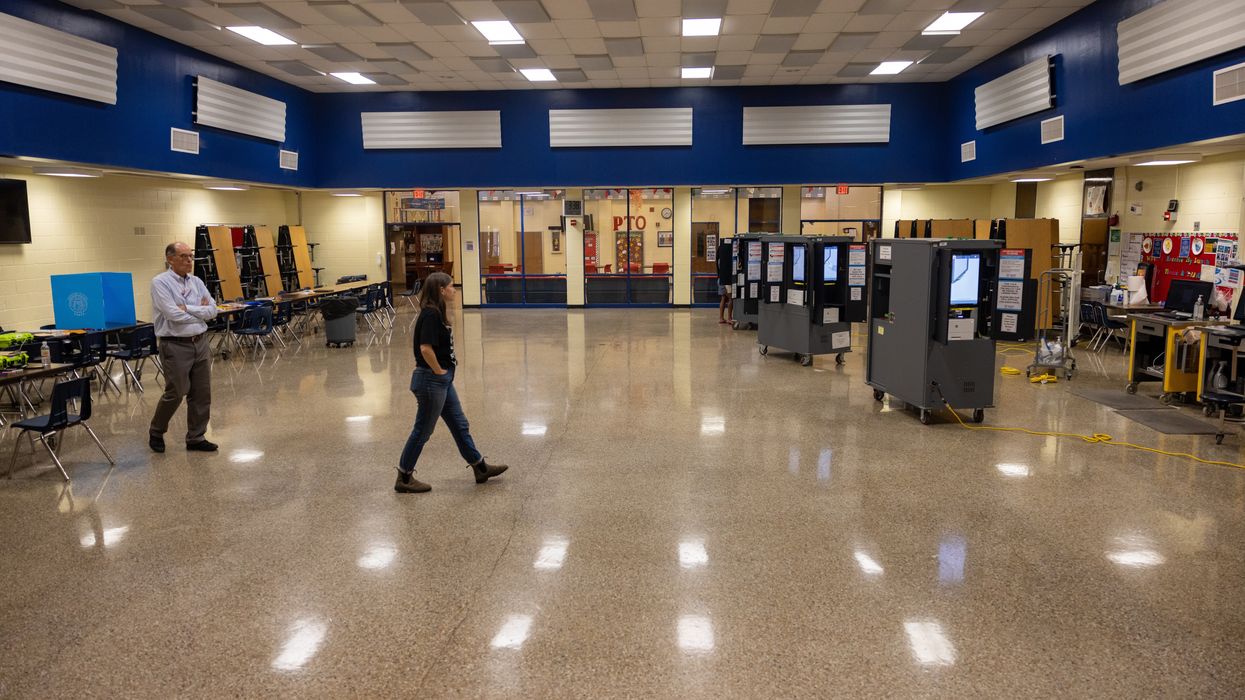Troiano is the executive director of Unite America, a philanthropic venture fund that invests in nonpartisan election reform to foster a more representative and functional government. He’s also the author of “ The Primary Solution.”
Last month, Americans were treated to an embarrassing spectacle: Reps. Marjorie Taylor Greene (R-Ga.) and Jasmine Crockett (D-Texas) trading personal insults related to “fake eyelashes” and a “bleach blonde bad built butch body” during a late-night committee hearing. Some likened it to Bravo’s “Real Housewives” reality TV series, and wondered how it was possible that elected officials could act that way and still be elected to Congress by the voters.
The truth is, the vast majority of us don’t actually elect our House members — not even close. Less than 10 percent of voters in Crockett’s district participated in her 2024 Democratic primary, which all but guaranteed her re-election in the safe blue district. Greene ran unopposed in her GOP primary — meaning she was re-elected without needing to win a single vote. The nearly 600,000 voters in her overwhelmingly red district were denied any meaningful choice. Both contests were decided well before most voters participate in the general election.
Greene and Crockett are far from alone. Coming out of Tuesday’s primaries, more than 50 percent of the U.S. House of Representatives has already been decided. By August, roughly 80 percent of House seats will have been decided in congressional primaries. Let that sink in.
Unite America, the organization that I run, coined this the “ Primary Problem.” Primary turnout has always been relatively low, and 15 states even restrict independent voters from participating, leading to a tiny fraction of voters determining the winners. In 2022, 8 percent of voters elected 83 percent of the House. This incentivizes inaction and gridlock in Congress on the most important issues, even when the majority of Americans agree.
The 2024 Primary Problem is following a similar troubling trajectory. Before Tuesday's primaries, 214 House seats (49 percent) were already effectively decided in 22 states. Fewer than 12 million voters participated in those determinative primaries. That’s 5 percent of the country’s voting age population deciding nearly half of the entire U.S. House. Another 12 safe districts were decided yesterday in four states’ low-turnout primaries — pushing the share of “pre-elected” seats over 50 percent.
A whopping eight of the states that have held congressional primaries feature zero competitive general elections. That includes Maryland and Georgia, where 14 percent and 3 percent of voters, respectively, have already elected 100 percent of those states’ House delegations. Other familiar faces who have already been re-elected in 2024 primaries include Rep. Jim Jordan (Ohio) of the far-right Freedom Caucus and Rep. Summer Lee (Pa.) of the far-left Squad. Jordan ran unopposed, and Lee won in an election where only 17 percent of voters in her district participated.
For voters like me who are tired of elections that no longer feel representative, this November may actually bring some hope. Voters in seven states are responding to the Primary Problem by pursuing 2024 ballot initiatives that do something simple yet transformative: ensure that every eligible voter has the freedom to vote for any candidate, regardless of party, in every taxpayer-funded election. If passed, these states would replace separate party primaries with a single, all-candidate primary — where the top vote getters advance to the general election.
Four states have already done this. Louisiana was the first state to abolish party primaries in the 1970s. More than 30 years later, voters in Washington state passed a top-two nonpartisan primary system in 2004, followed by California in 2010. Alaskans followed suit in 2020 when they approved a top-four nonpartisan primary. While change certainly didn’t happen overnight, it’s clear the reform movement is gaining momentum.
Nevada’s and South Dakota ’s initiatives have already qualified for the ballot — and in the next few months, we’ll know whether Arizona, Colorado, Idaho, Montana and Oklahoma will join them. If even just a couple succeed, that represents tremendous progress toward fairer elections and a more functional government.
Congress should represent the interest of all voters — not just the small minority voting in partisan primaries. By fixing the Primary Problem, voters can have better choices for who represents them in Washington. Let’s leave reality TV to Bravo and get back to governing by and for the people.




















Trump & Hegseth gave Mark Kelly a huge 2028 gift